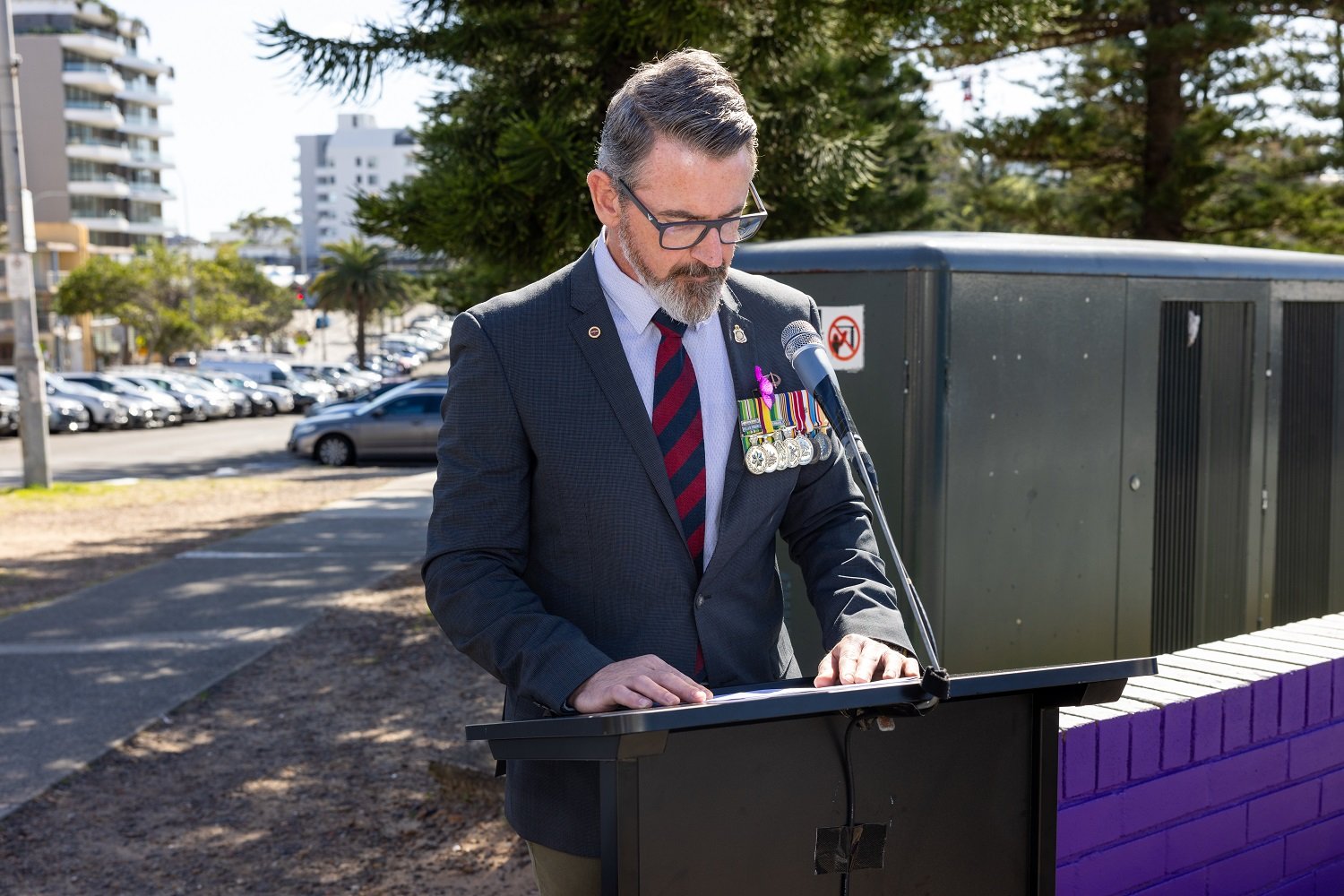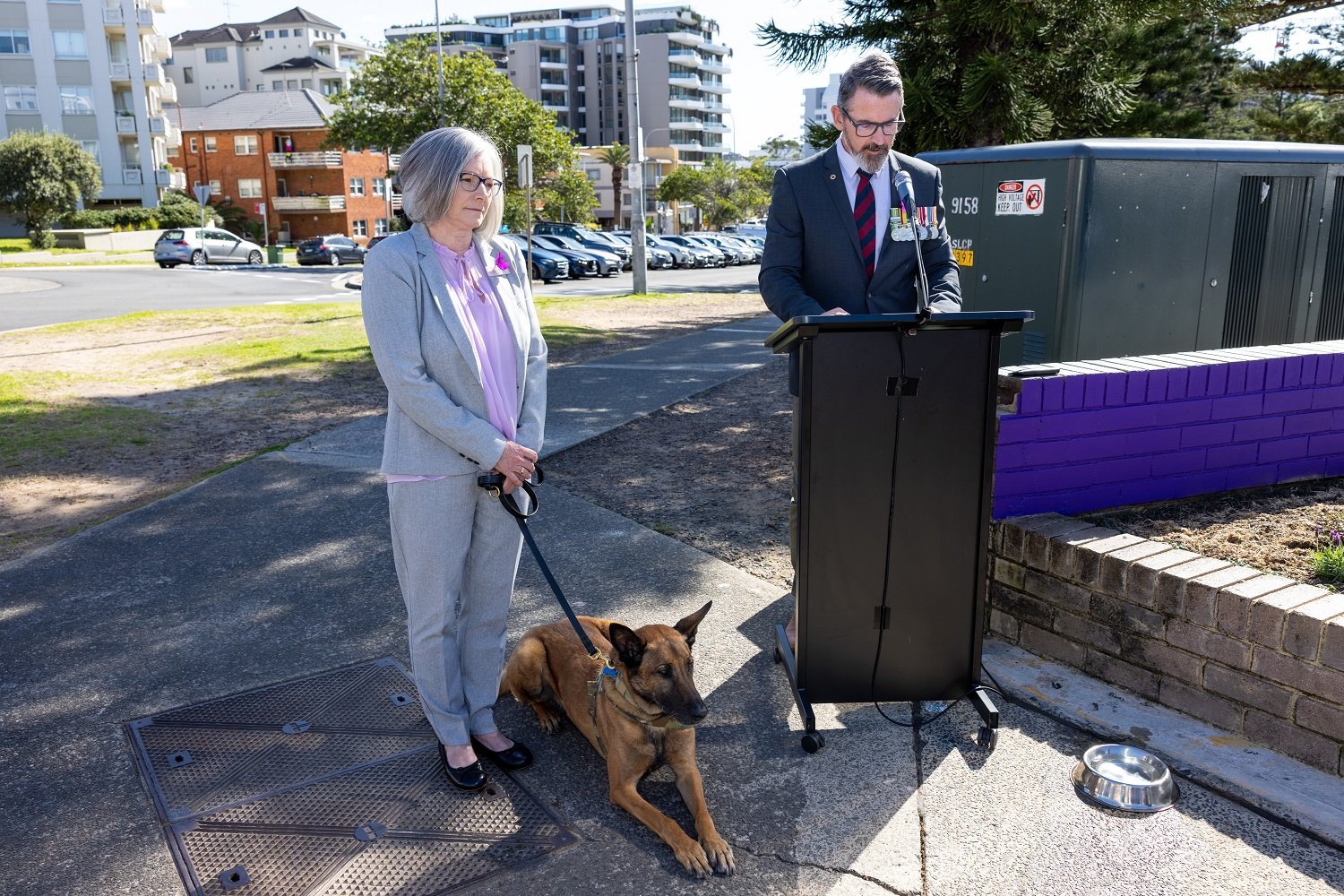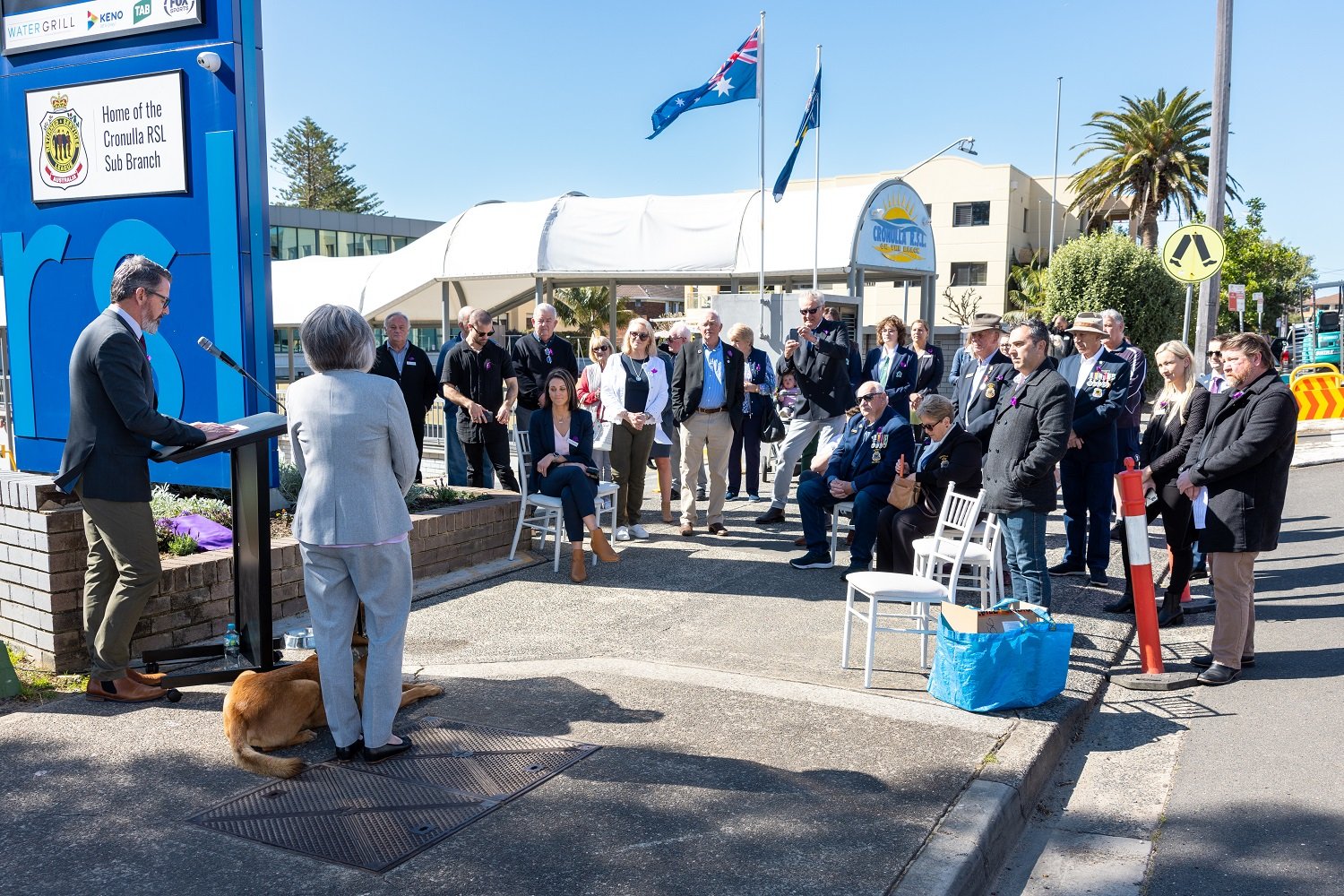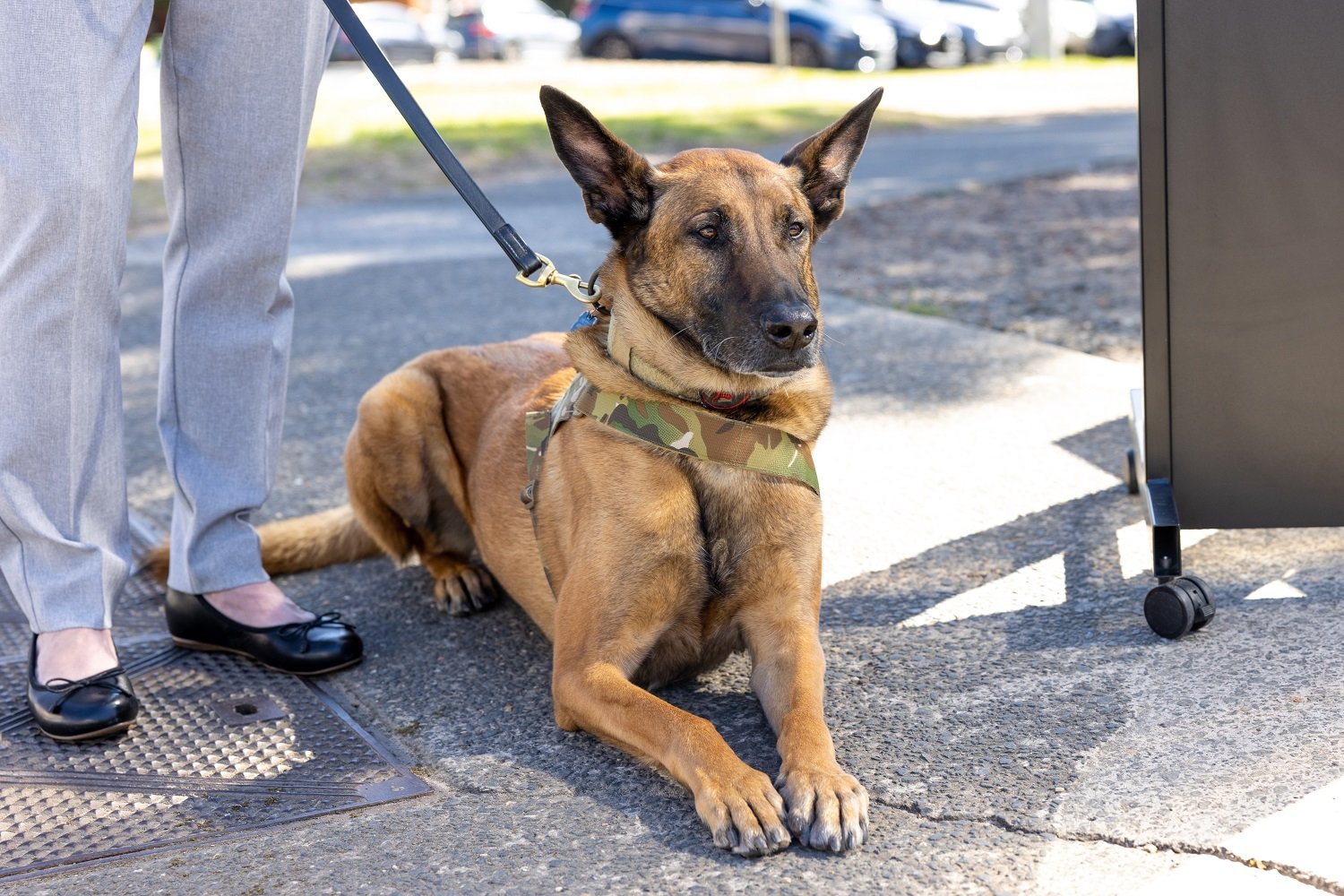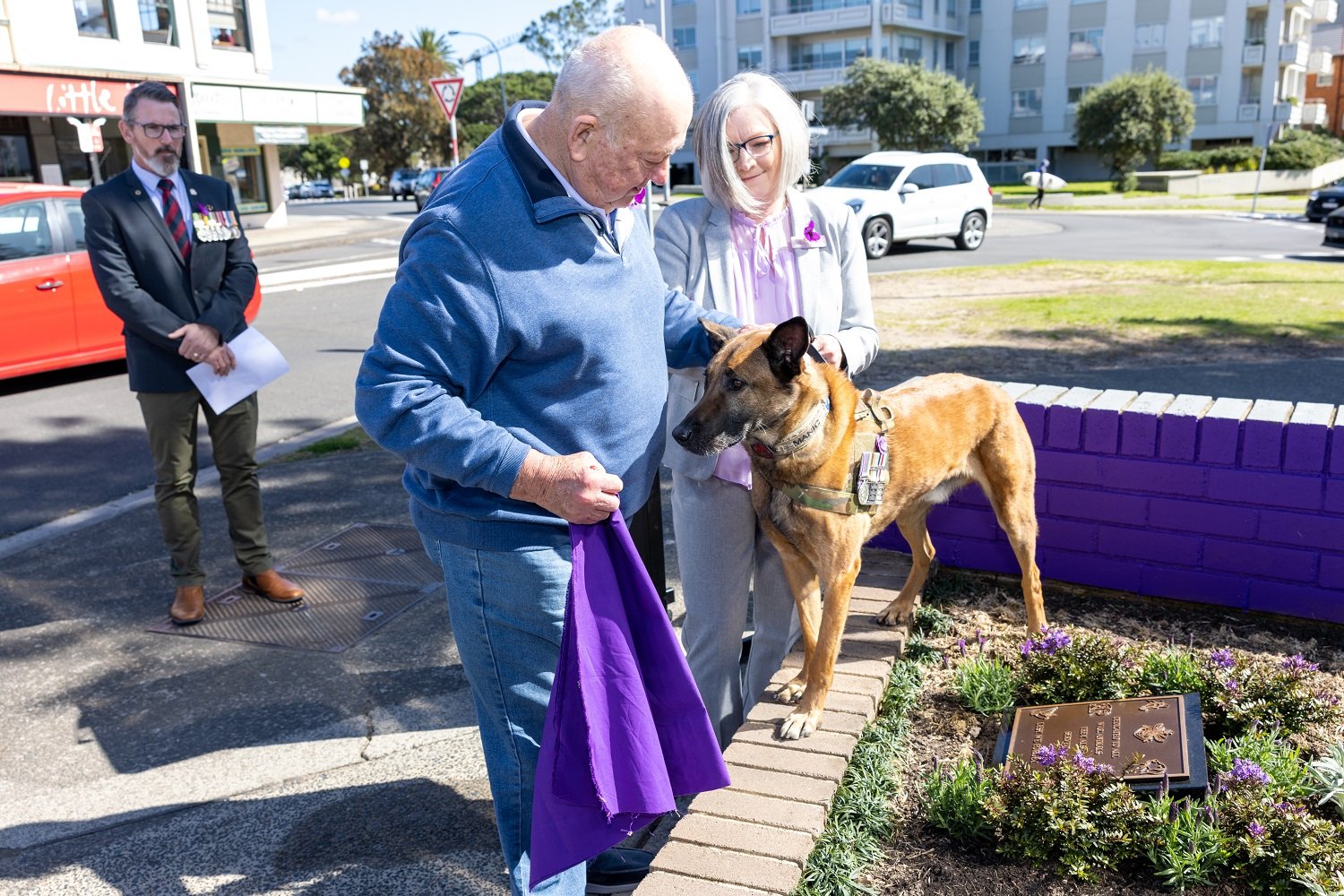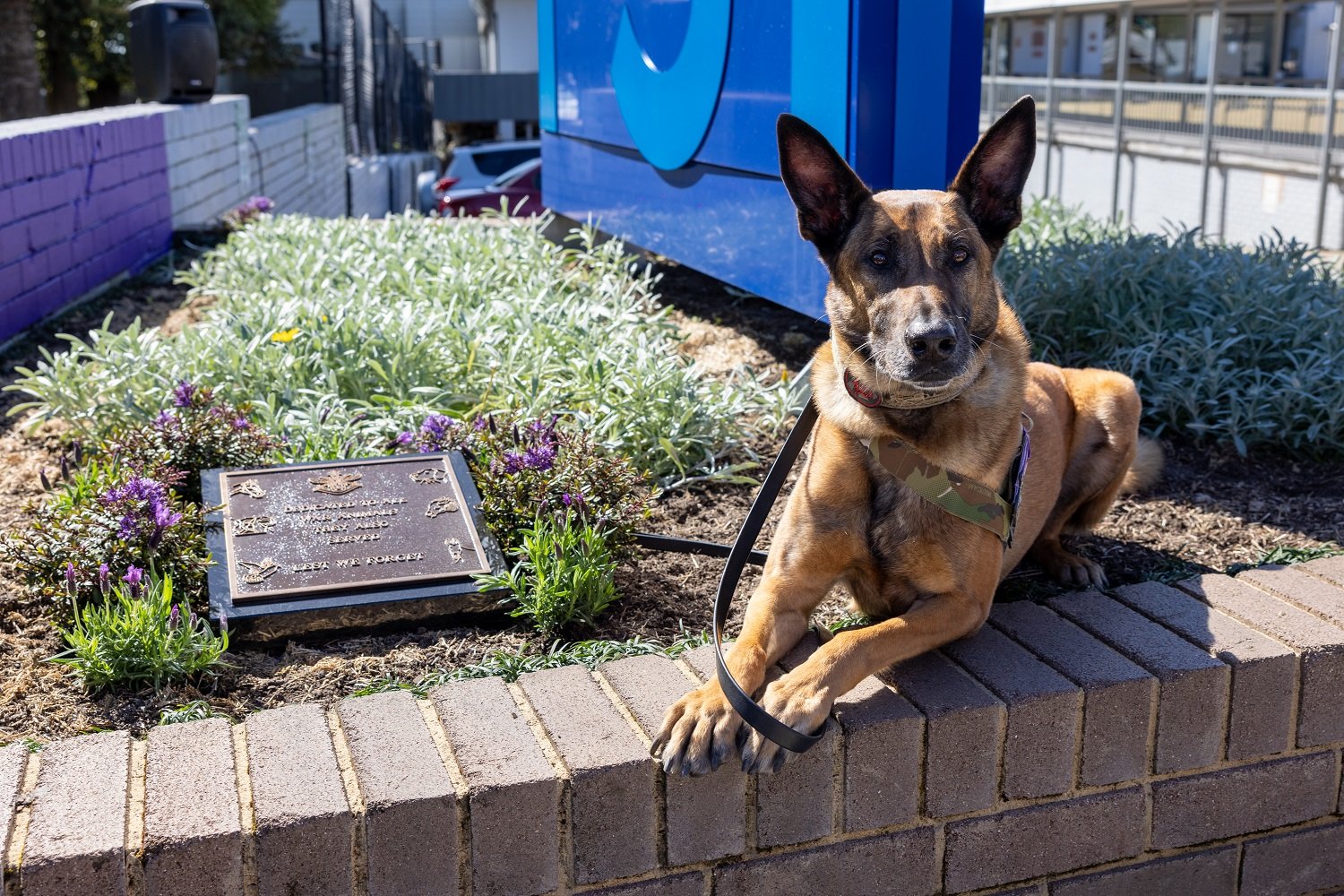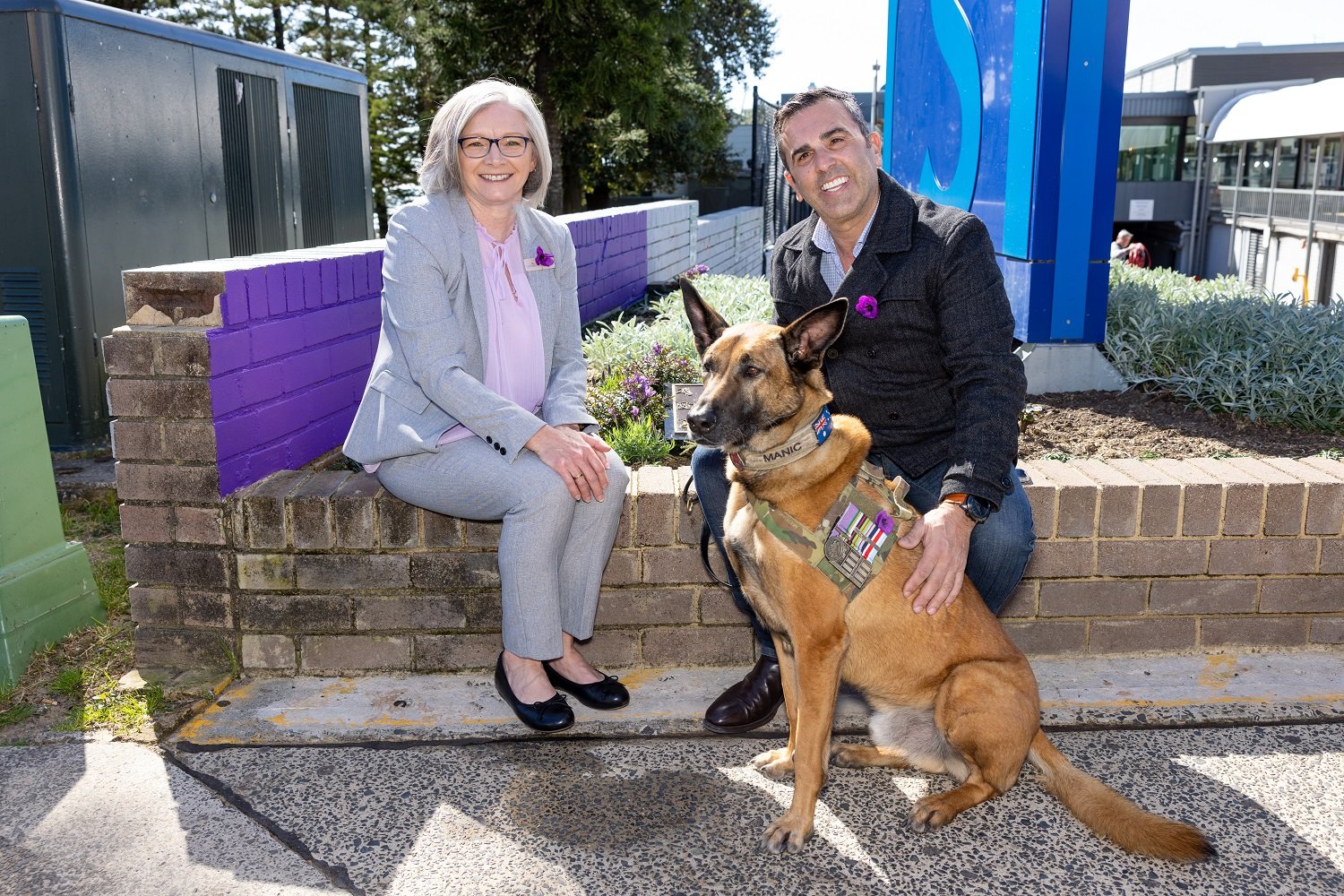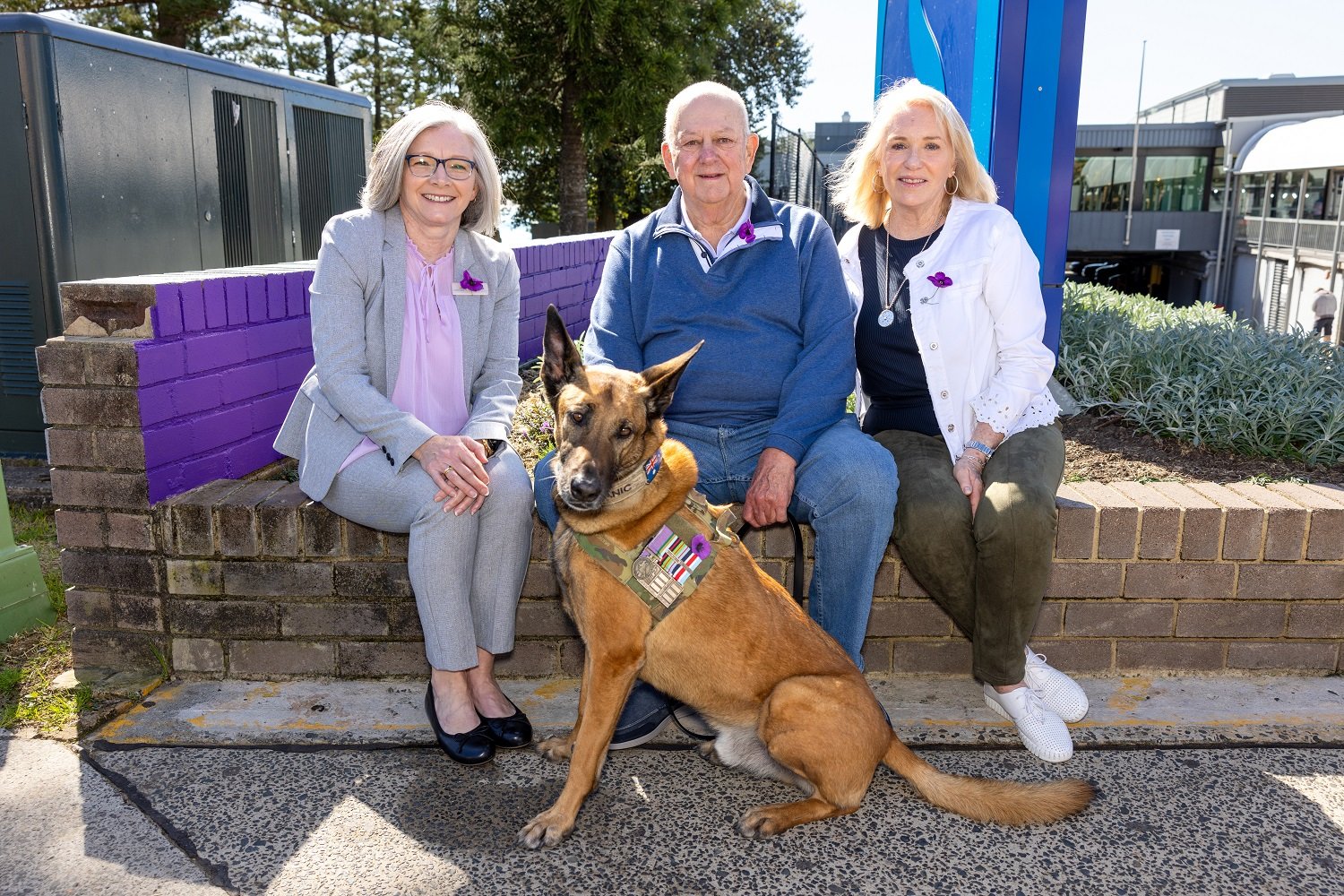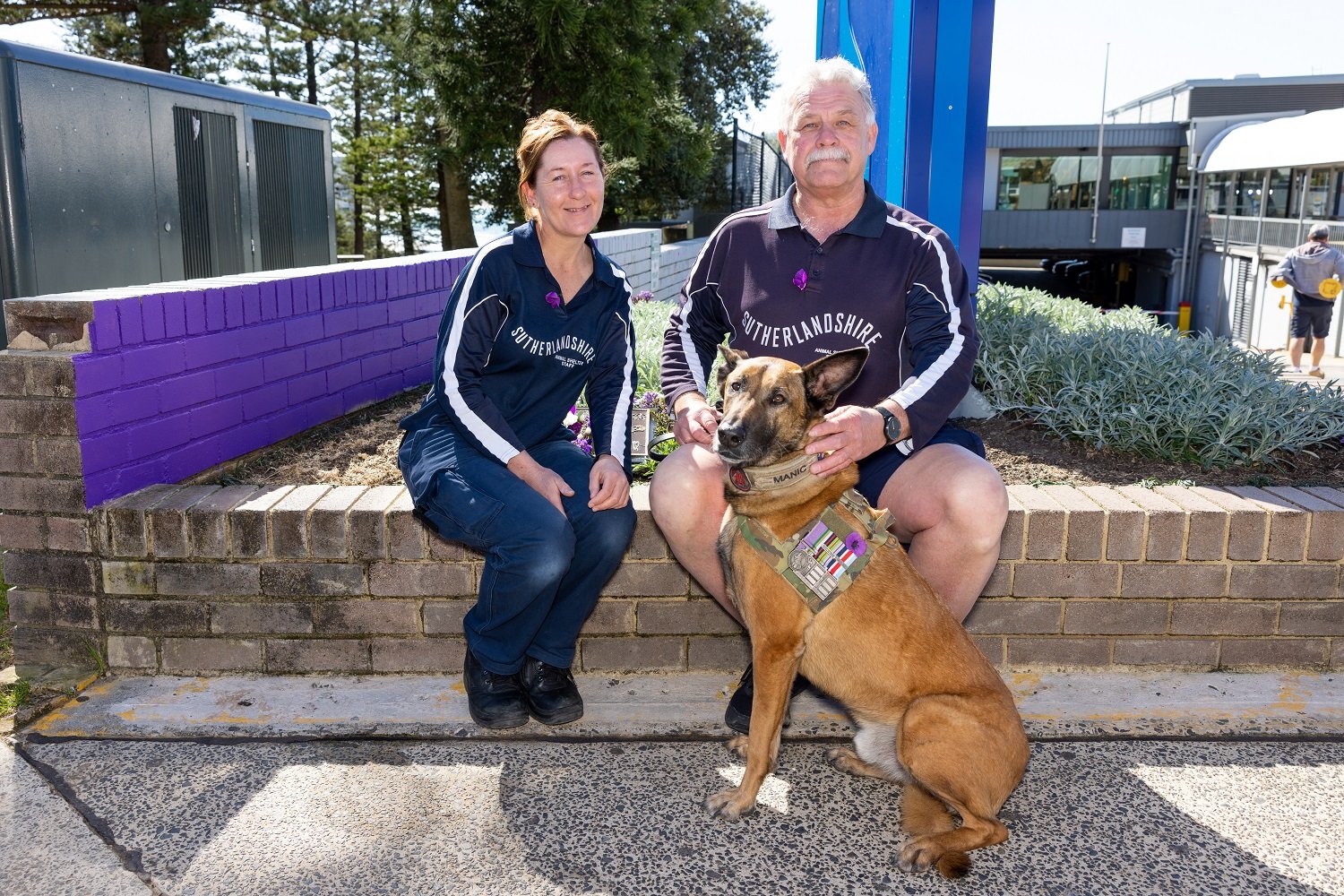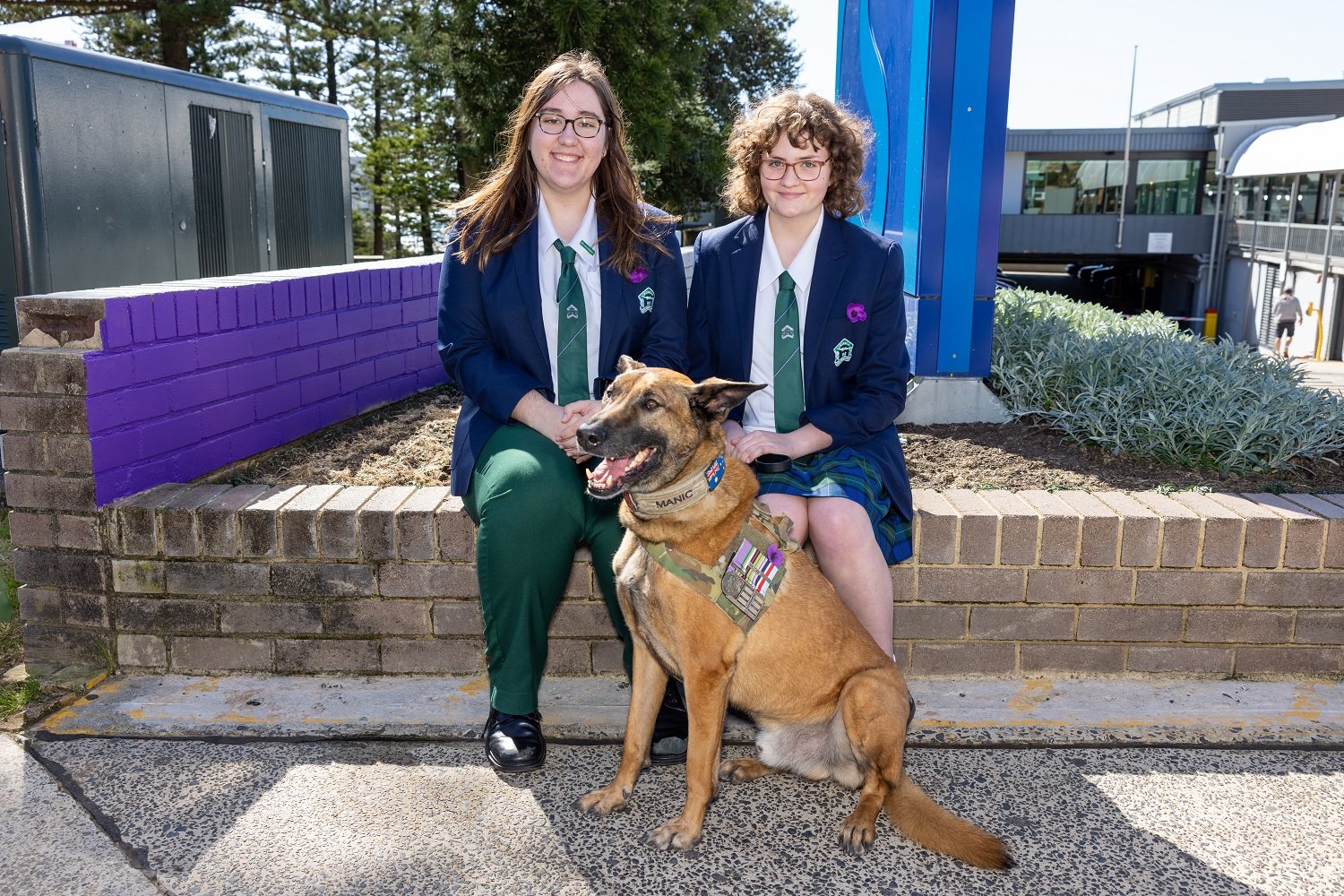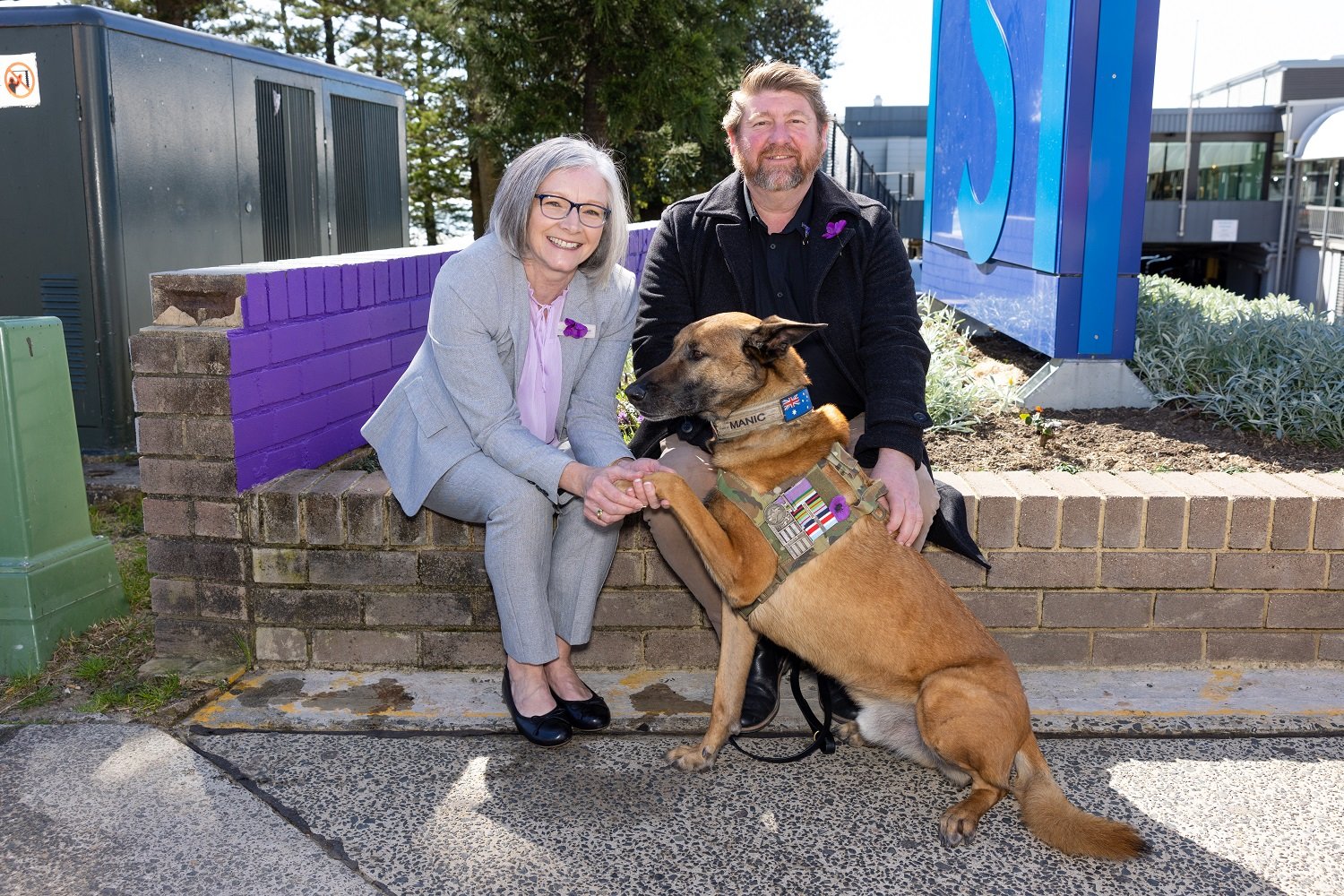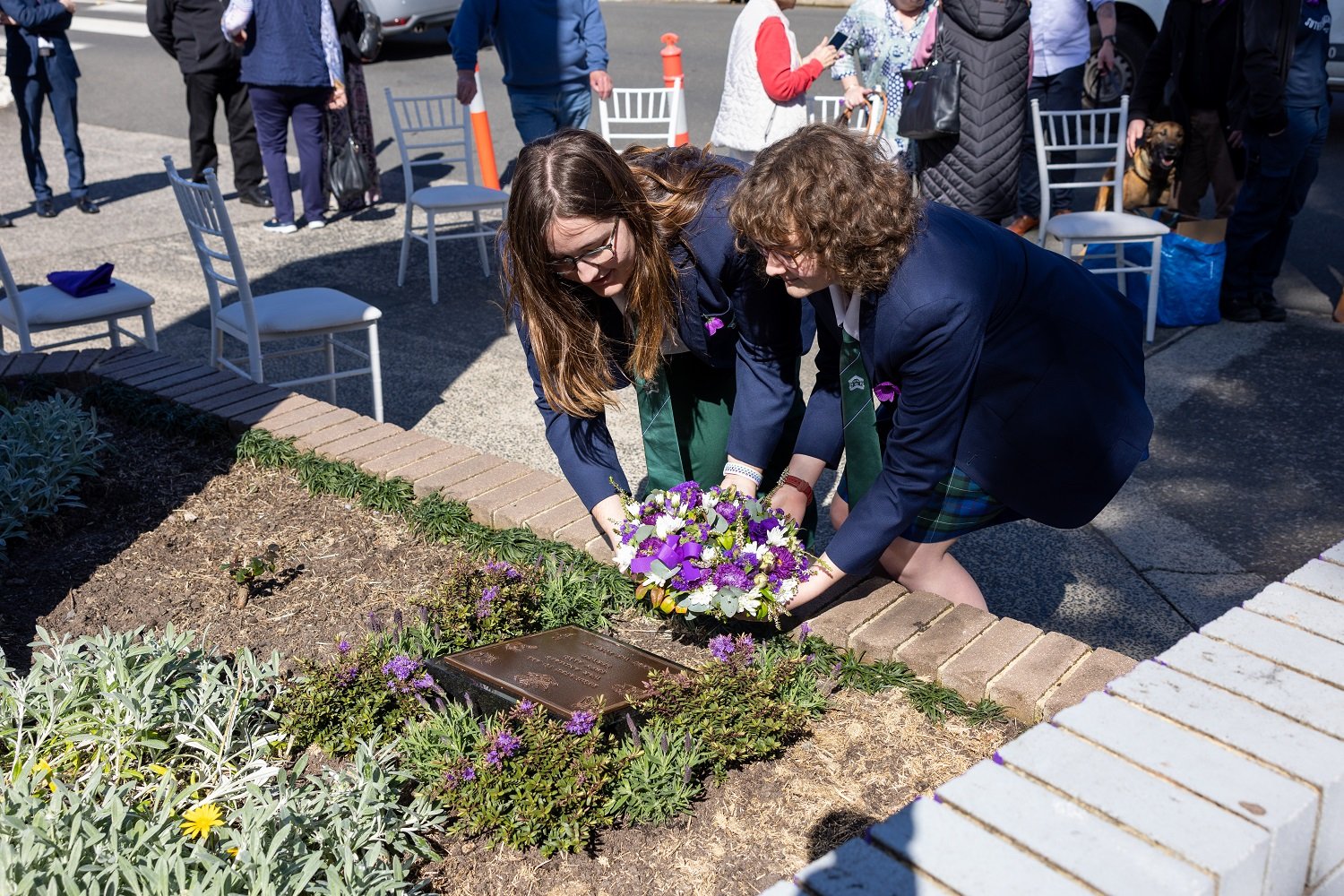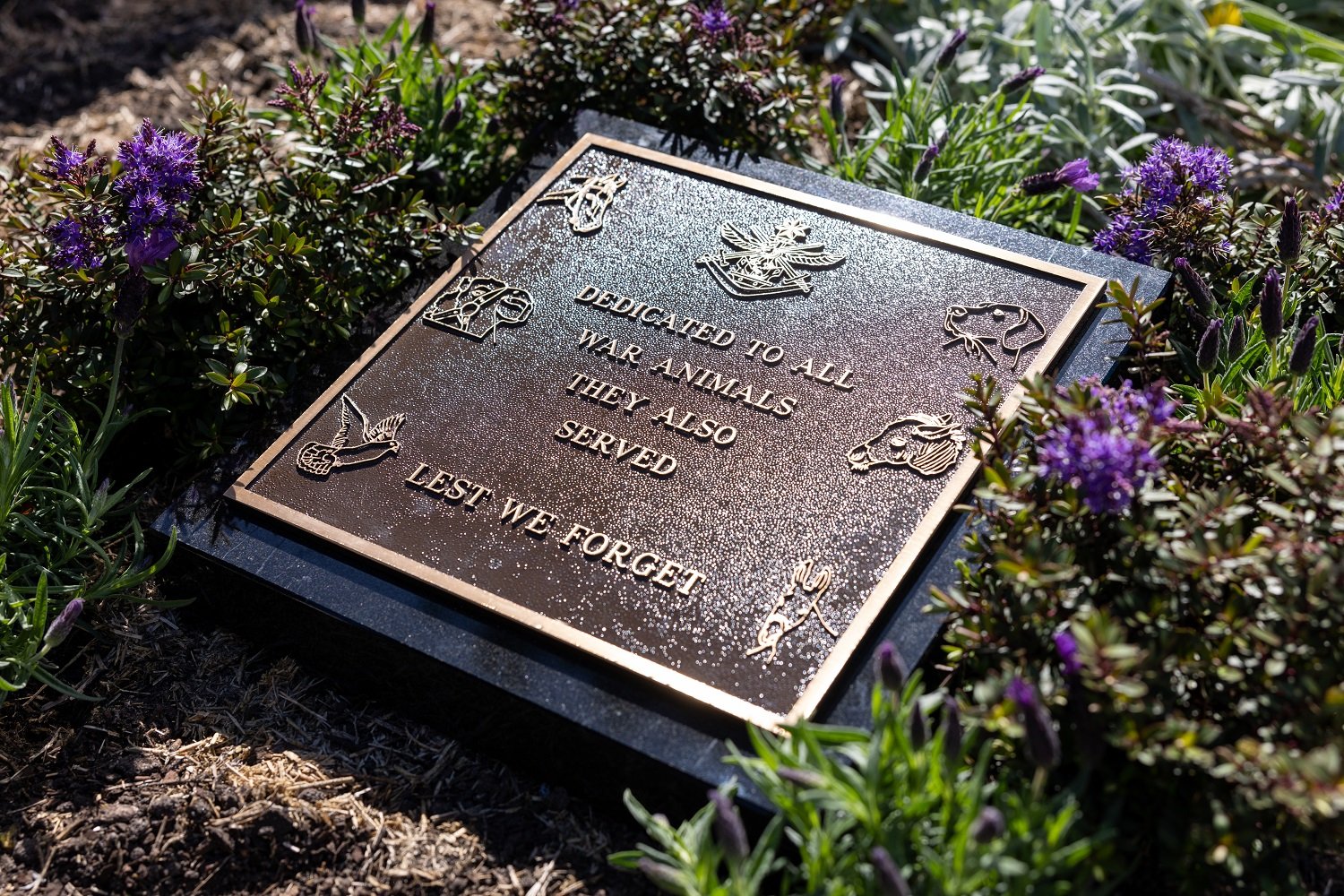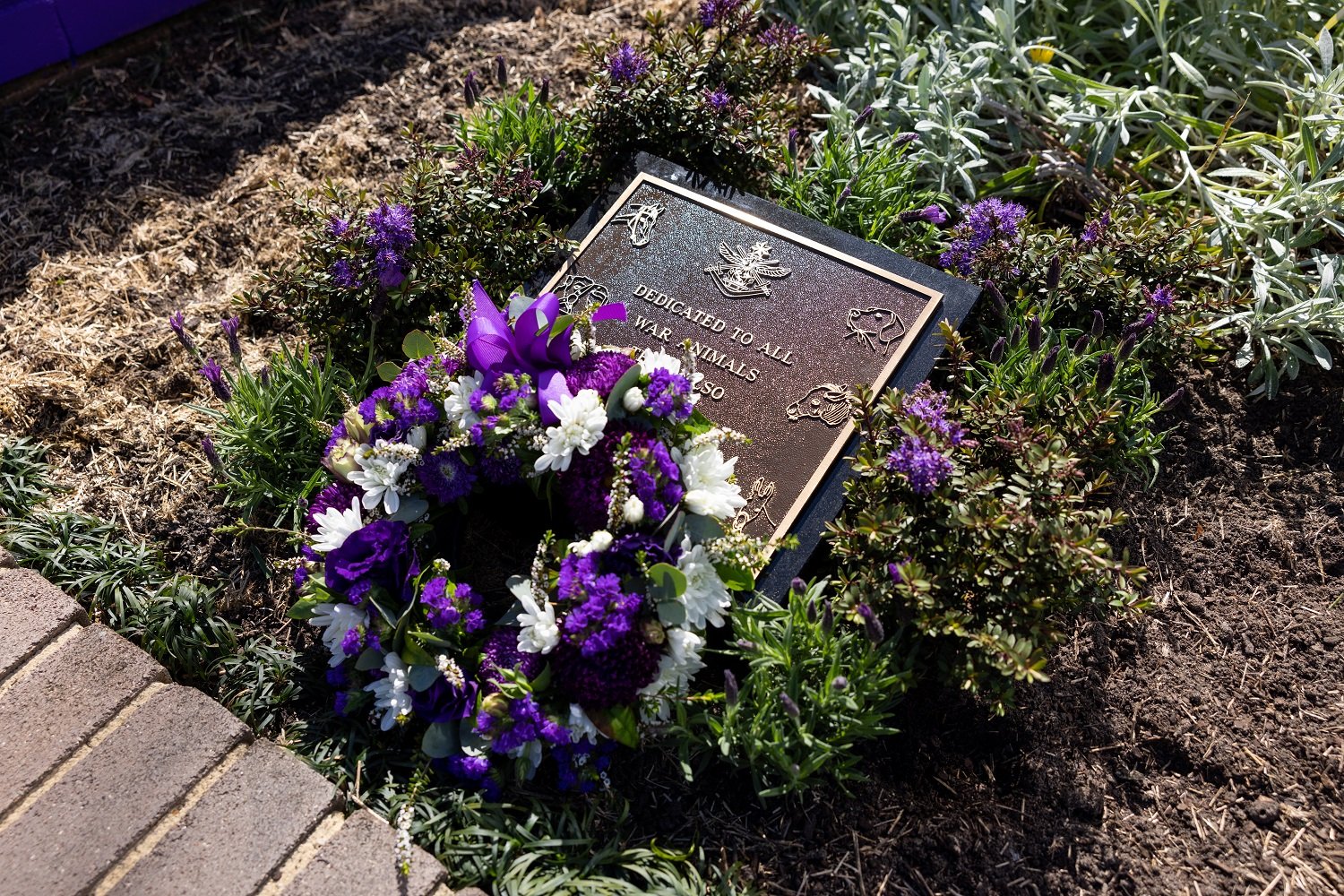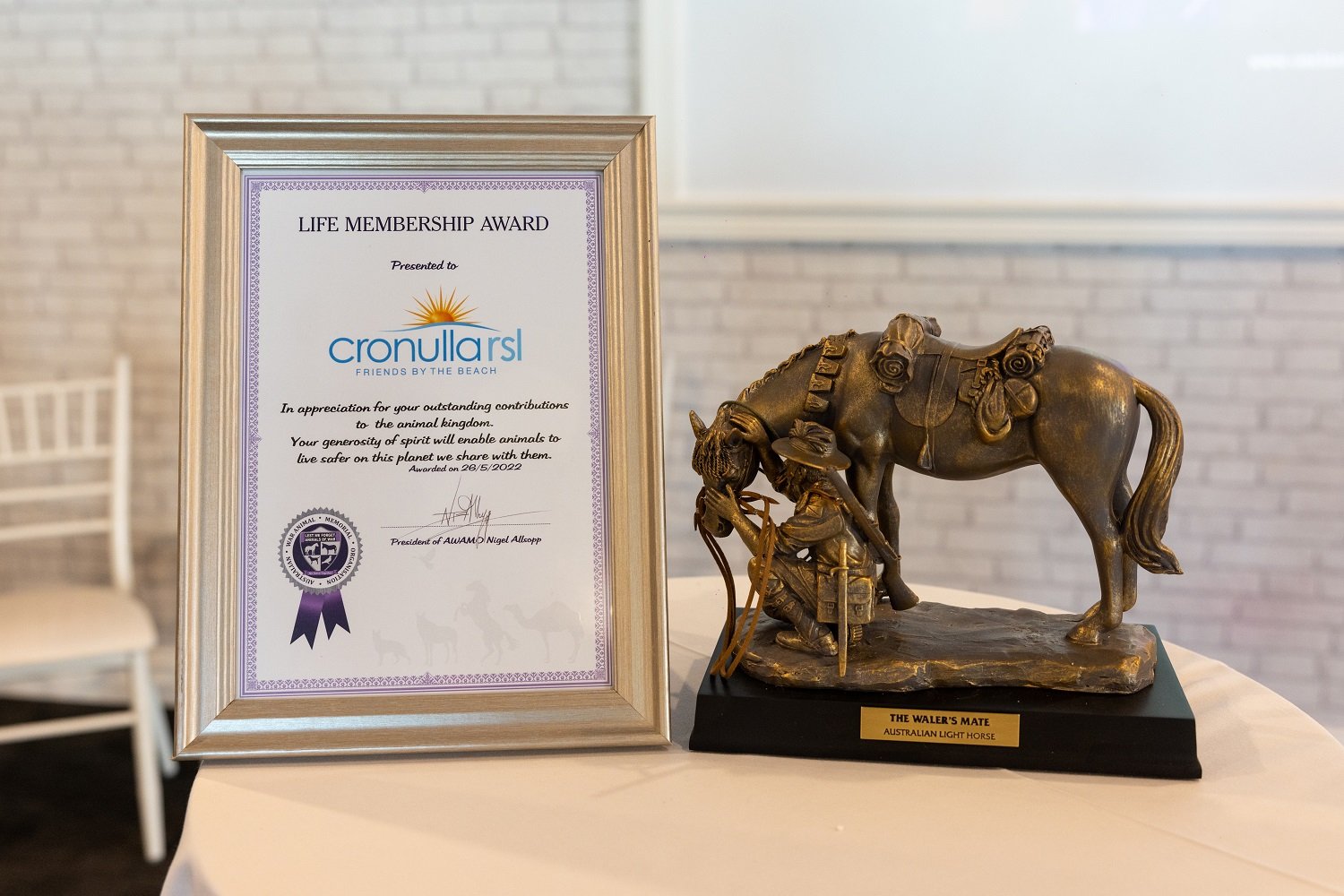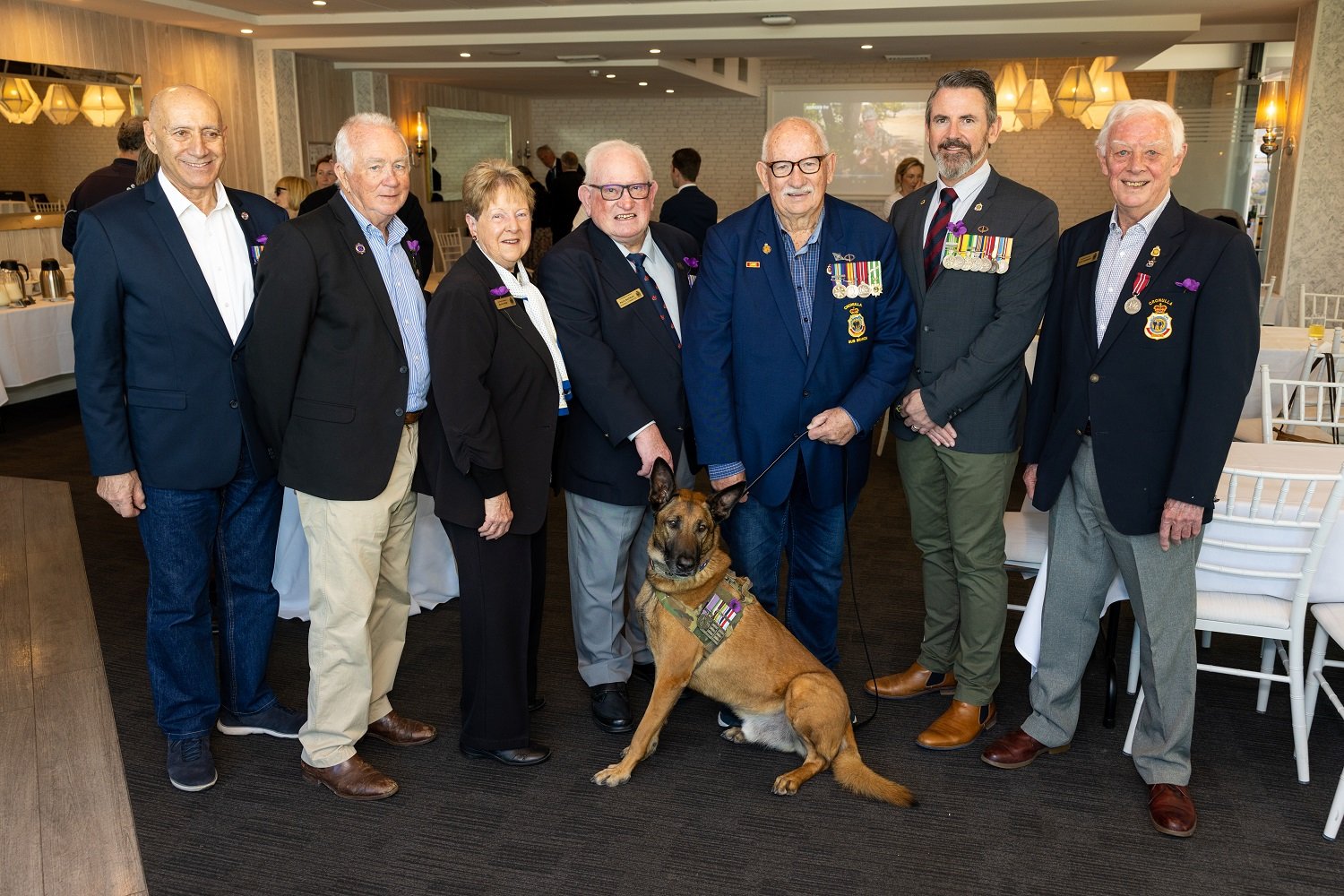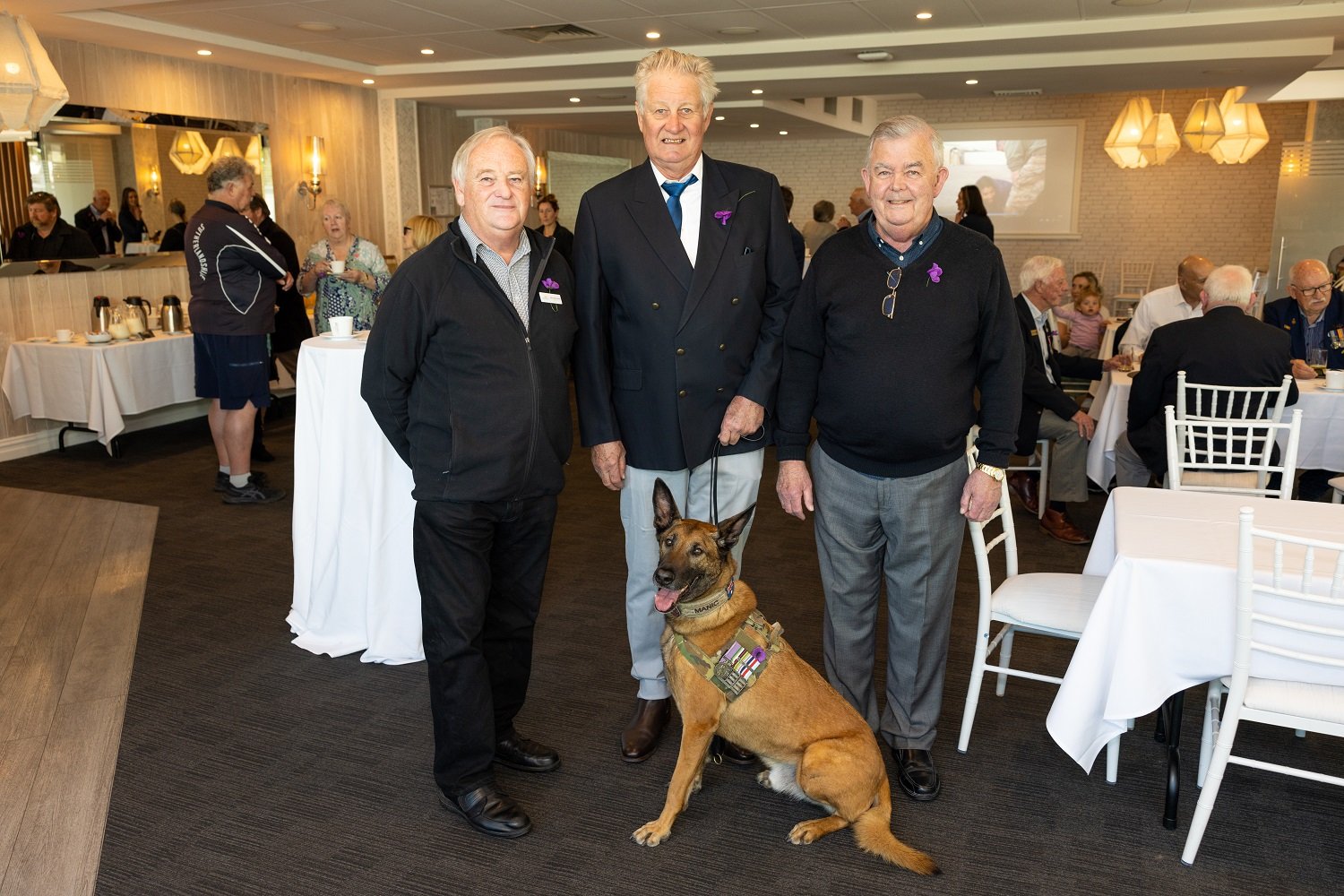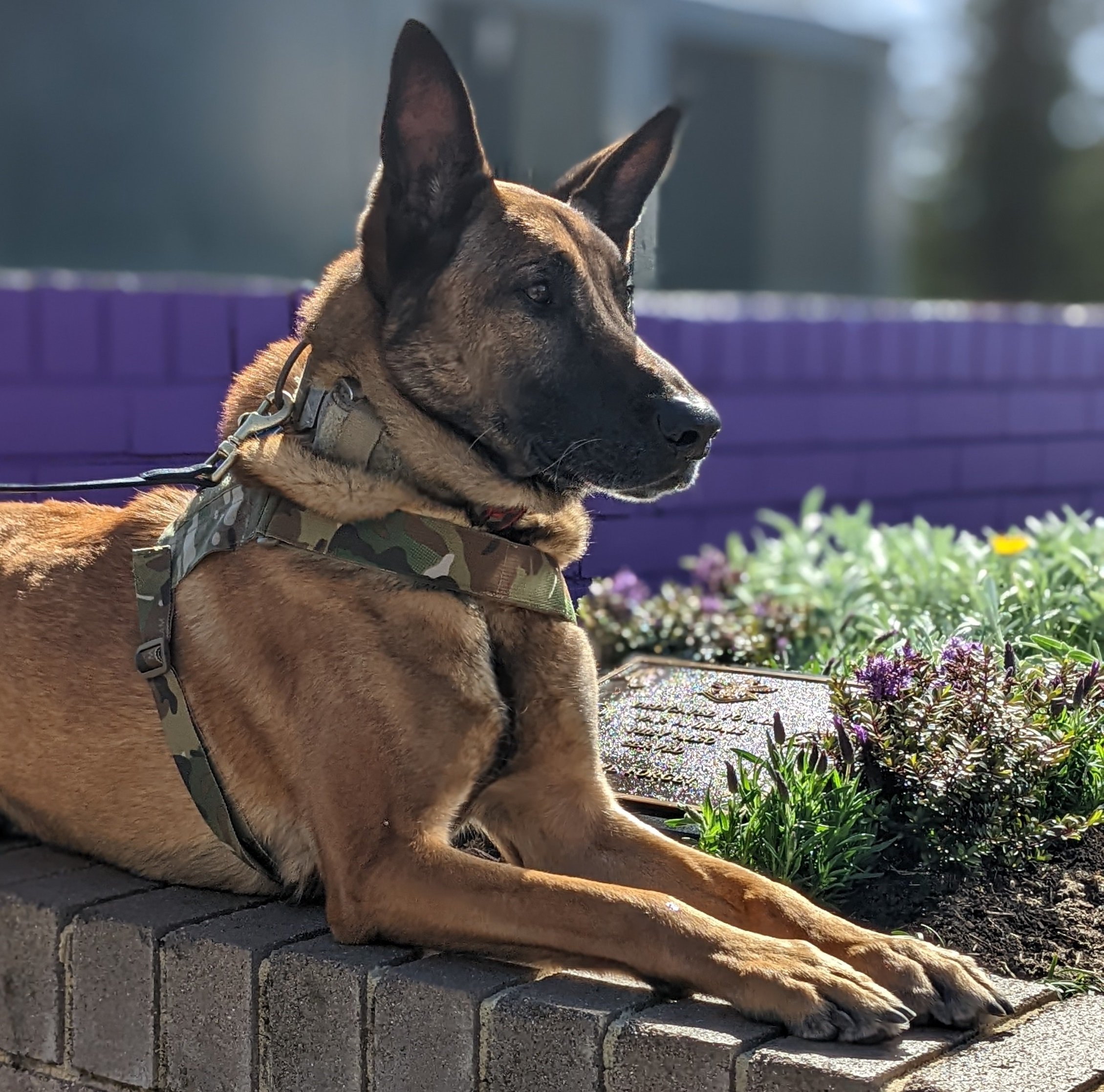Cronulla RSL Honour Animals Who Served During Times of War & Peace
Cronulla RSL has unveiled a memorial garden and plaque dedicated to animals who have served during times of war & peace, the first of its kind in New South Wales at an RSL Club.
Situated on Gerrale Street, the purple garden features a bronze plaque which was been developed in conjunction with the Australian War Animal Memorial Organisation (AWAMO) and recognises the sacrifices and deeds that animals have undertaken in battlefields around the world. The plaque was designed in consultation with Vision Australia, and features raised 3D shapes to assist those visiting the memorial who are blind or have low vision. Cronulla RSL is the first returned services club in the state to install a memorial in support of animals who have bravely served Australia.
Animals have played a very significant role in assisting our defence forces over the years. In the context of our Australian forces, dogs have been used for tracking, horses and donkeys have transported soldiers and equipment, pigeons have carried messages, and animals have provided comfort as mascots and companions.
Cronulla RSL hopes that the garden will give the community a place to commemorate those brave animals and raise awareness about the limited support received by Military Working Dogs (MWDs) upon their retirement. Cronulla RSL support their local retired MWD ‘Manic’, who served in Iraq and on Tactical Assault Group East (TAGE). The Australian Defence Force does not have a duty-of-care to MWD veterans when their service ends.
Cronulla RSL hopes that the garden will give the community a place to commemorate those brave animals and raise awareness about the limited support received by Military Working Dogs (MWDs) upon their retirement.
Because of the typical age of MWD retirement, the people who take on responsibility for veteran dogs are unable to take out pet insurance to help with the costs of their veterinary care. Unfortunately, many of the significant health costs come at the end of a dog’s life. This can be a significant impost on those that have given our military working dogs their retirement home.
‘We were so touched by Manic’s story and saddened to hear of the limited support war dogs and their handlers receive after their service, that we were inspired to help do what we could to make a difference,’ said Cronulla RSL CEO Sue McNeill. ‘There is currently no Department of Veterans Affairs waiting to support our war dogs when they retire. We owe them so much, at least to make their last few years of life comfortable and provide them with the medical treatment they need. We hope the wider community consider helping us help these veterans.’
“‘We were so touched by Manic’s story and saddened to hear of the limited support war dogs and their handlers receive after their service, that we were inspired to help do what we could to make a difference,”
Thanks to the generous donation of its members, Cronulla RSL has raised over $15,000 for AWAMO and Manic. Manic is an honorary member of the club, complete with his own club membership card. Cronulla RSL have been recognised by AWAMO as the pioneers in this space, being awarded life membership of AWAMO and announced the first club in Australia to provide a veteran war dog club membership.
AWAMO has a program in place to financially help and support these veteran Australian Military Working Dogs like Manic. Funds raised by the charity are used to purchase medication, cover veterinary treatments, supply comfort aids and assist with end-of-life expenses. There remains around 20 Military Working Dogs (MWD) that have deployed multiple times to Afghanistan that are either still in service or recently retired. 11 have given the ultimate sacrifice, killed in Afghanistan protecting our troops.
Thanks to the generous donation of its members, Cronulla RSL has raised over $15,000 for AWAMO and Manic.
AWAMO are also currently working tirelessly to support and provide much-needed food, medication, and ground support to those helping the innocent animals of Ukraine suffering through conflict.
Timeline Animals in conflict and the impact of war on them
WWI: More than 16 million animals were forced into service with over 9 million killed.
WWII: Even greater numbers than the First World War- unknown number of Equines at least 5 million were in use at anyone time. One example was approx. 170,000 horses were needed each month as replacements by the German Army on the Eastern Front.
Vietnam War 1955-77: Use of Agent Orange destroyed the habitats for Elephants Asian Tigers, Civets, Leopards and other species causing their extinction in this area. At least 40,000 animals were killed by landmines for the 20 years that followed.
Mozambique Civil War 1977-92: Giraffe and Elephant herds in National Parks have been reduced by 90%
Iran-Iraq War 1980-88: The populations of wolves, otter, pelicans, stripped Hyenas, river dolphins were wiped out to the point of extinction.
Sudanese Civil War 1983-2005: The Elephant population fell from over 100,000 to under 5,000
Afghan War 1990s: Over 75,000 animals due to landmines- approx. 50% of all livestock.
Gulf War 1990-91: More than 80% of livestock in Kuwait died some 790,000 sheep, 12,500 cattle, 3,000 horses. About 85% of animal’s captive in Zoos. Via the deliberate oil leak into the Persian Gulf caused the death of quarter of a million aquatic animals & birds
AWAMO
AWAMO is a volunteer not-for-profit group, with the aim to recognise the deeds of animals during Australian military service and to educate generations to follow of the sacrifices made by four legged diggers. They have they donated over 30 plaques honouring the deeds and sacrifices of animals during all wars at various RSLs, Parks and Military establishments and have numerous initiatives in place to support animals who have given military service or are impacted by war.
MEMORIALS AROUND AUSTRALIA
There are hundreds of memorials around Australia and the world honouring our brave animal friends. In fact, if you search the animal category of the Monument Australia website you’ll find around 50 listings of monuments honouring animals that helped us during wartime.
There are memorials dedicated to animals in general, as well as other dedicated to specific animals such as Smoky – a Yorkshire Terrier who worked during WWII and is the first documented therapy dog.
In Maribyrnong in Victoria, a sculpture commemorates Sandy, the only one of Australia’s 169,000 war horses to return home from WWI. There is also a plaque in Caboolture recognising the pigeons that saved many soldiers’ lives in both World Wars.


